 Malta Alternative Investment Funds (AIF)
Malta Alternative Investment Funds (AIF)
Malta Alternative Investment Funds (AIF)

Get in Touch with NAME
The Alternative Investment Fund Managers Directive (“AIFMD”) is a 2011 EU Directive regulating the marketing and management of funds, excluding UCITS funds, within the EU. The AIFMD and its regulation was transposed within the Investment Services Act in July of 2013.
CSB Group has been into the financial services industry for over 30 years with investment services professionals available to assist in any enquiries. Our investment services team can help you advance your fund from concept to launch through the advisory, licensing and incorporation, ongoing administration and accounting.
Directive definition of an AIF
The Directive defines an Alternative Investment Fund (“AIF”) as: “A Collective Investment Scheme (CIS), including sub-funds thereof, which raises capital from a number of investors, with a view to investing it in accordance with a defined investment policy for the benefit of those investors, and which does not qualify as an Undertaking for Collective Investment in Transferable Securities (UCITS) Scheme in terms of the UCITS Directive.” Therefore, hedge funds, private equity funds, real estate funds, venture capital funds, and others all fall within the scope of AIFMD.
To Whom Does Alternative Investment Fund Managers Directive (AIFMD) apply?
The implementing procedures of the Alternative Investment Fund Managers Directive (AIFMD) subjects fund managers to an authorisation, or registration, requirement as well as a number of ongoing obligations such as investor disclosures, regulatory reporting, the role of the depository and remuneration. Essentially, the Directive would concern:
- Fund Managers established in the EU managing and / or marketing Alternative Investment Funds (“AIFs”), and outside the EU;
- Fund Managers established outside the EU managing and / or marketing their AIFs in the EU;
- Collective Investment Schemes (“CISs”), other than UCITS, marketed in the EU or managed by an EU/EEA manager of alternative investment funds
AIFs carrying out activities in Malta are regulated in Malta and require an Investment Fund Licence issued by the Malta Financial Services Authority (“MFSA”). For regulatory purposes, Professional Investor Funds (“PIFs”), and Private Collective Investment Schemes would not be captured by the definition of an AIF in terms of the AIFMD.
Alternative Investment Fund Managers Directive (AIFMD) & Malta
In June 2013 the MFSA updated its Investment Services Rulebooks as part of Malta’s implementation of the Alternative Investment Fund Manager Directive. The Investment Services Act, 1994 provides the statutory basis for regulating Collective Investment Schemes constituted in or operating in or from Malta. AIFs are a special class of Collective Investment Schemes which fall within the scope of this Act. It is still possible to apply for a Professional Investor Fund (PIF) license in either of the following cases:
- Applicants who opt to apply to be licensed as a “de-minimis” self-managed AIF;
- Applicants who opt to apply for a PIF licence provided the PIF is managed by as “de-minimis” AIFM;
The lighter touch “de-minimis” AIFMD regime applies in respect of fund managers whose assets under management:
- Do not exceed €100 million (when leveraged), or
- Do not exceed €500 million, where there is no leverage and where investors may not effect redemptions for a 5-year period.
Service Providers of an Alternative Investment Fund (AIF) under Maltese Law
An AIF may appoint service providers as it deems necessary. Nonetheless, a Maltese licenced AIF is required to, at least, appoint:
| AIFM | Should the AIF be 3rd party managed, then an AIFM subject to the AIFMD is required. Should the AIF be self-managed, then the Board of Directors of the AIF will set up an Investment Committee composed of, at least, three persons. |
| Custodian / Depository | Up till the 22nd July 2017, an AIF licenced in Malta may appoint a custodian / depository situated in any EU Member State. Following this date, the AIF must appoint such credit institution having substance in Malta and authorised by the MFSA. |
| Compliance Officer | Although the AIF’s compliance with its licence conditions rest within the Board of Directors, a Malta-licenced AIF must have a Compliance Officer at all times. Such role would envisage to issue a compliance report, at least, semi-annually and made available to the regulator. |
| MLRO | Responsibility for the AIF’s compliance with the prevention of money laundering regulations rests within the Board of Directors (or GPs). Nonetheless, a Malta-licenced AIF must have an MLRO in place at all times. |
| External Valuer | The External Valuer shall be appointed by the AIFM, or by the AIF should the latter be self-managed |
Application and Supervisory Fees of an Alternative Investment Fund (AIF) in Malta
Regulatory fees comprise of a non-recurring Application fee payable on submission of the Application for an AIF and an annual supervision fee which is due on the anniversary of the license being granted as outlined below.
| Application Fee | Annual Supervisory Fee | |
|---|---|---|
| AIF | €2,000 | €2,000 |
| Sub-Funds (per sub-fund) | €1,000 | €600 |
| Incorporated Cells of RICCs (per Incorporated Cell) | €1,000 | €600 |
| Notification Fee | Annual Supervisory Fee | |
|---|---|---|
| European AIF | €2,500 | €3,000 |
| Per Scheme Sub-Fund | €450 | €500 up to 15 Scheme Sub-funds (per sub-fund)* |
| *No Annual Supervisory Fee will be payable from the 16th Scheme sub-fund upwards | ||
AIF FAQs
Alternative Investment Funds (AIFs) may opt for either a self-managed structure or an externally managed structure. An AIF which is self-managed must be composed of an Investment Committee, appointed by the Board, to handle the portfolio management of the AIF subject to the governing Terms of Reference. The Investment Committee must be composed of, at least, three (3) members of which one is local. The Committee may also delegate the day-to-day portfolio management of the AIF to a designated portfolio manager (such as an individual, AIFM and/or MiFID licenced Firm) whilst also appointing independent experts and consultants in the operations of the AIF’s underlying assets.
On the other hand, a Full-Scope AIFM as duly licenced by the Alternative Investment Fund Management Directive (AIFMD) may act as an External Manager of the AIF. In such a scenario, the Board of the AIF will not appoint and investment committee as such committee will be within the helm of the AIFM.
For an AIF which is self-managed the initial share capital should be of €300,000. Should its NAV fall below such amount, the MFSA must be notified accordingly.
Following the transposition of the Alternative Investment Fund Managed Directive (AIFMD) in 2013, the main legislation governing Alternative Investment Funds is the Investment Services Act (Cap. 370 of the Laws of Malta) and, depending on the corporate form of the AIF, the Companies Act (Cap. 386 of the Laws of Malta). Additionally, Alternative Investment Funds are also subject to the Standard Licence Conditions (SLC) in Part B of the Rules whereby outlining the ongoing conditions in the operation of an AIF. Should the Fund be also listed on the Malta Stock Exchange, then the AIF is also subject to the Admissibility requirements for Collective Investment Schemes (Chapter 8 of the Listing Rules).
The Maltese Rule Books offer five main legal structures which may be applicable to AIFs. Due to its flexibility, the main structure adopted for Malta AIFs is the SICAV which can easily be used in the creation of Umbrella Funds (having a number of sub-Funds), Multi-Class, and Master Feeder structures. Other structures also include the Limited Partnership which was recently refreshed and governed by Schedule 10 of the Companies Act. Although not widely used, the LP may be applicable for Private Equity classes and which vehicle is tax transparent should its share capital not be divided into shares. Other legal forms also include the INVCO and a Unit Trust, although both are not widely adopted due to their nature. The rules also cater for an Incorporated Cell (IC) within and Recognised Incorporated Cell Company (RICC). Each cell will carry a separate legal personality from all the other ICs within the RICC platform and can take form of any of the above mentioned legal structures. Each Incorporated Cell can also have sub-Funds (each of which having a separate patrimony).
The investor base for AIFs are Qualifying (with a minimum holding of €100,000) and Professional Investors as defined by MiFID. When it comes to investment restrictions, these mainly apply when the AIF licence is that of a Retail-AIF. Other strategies in the likes of Hedge Funds, Real Estate Funds, Venture Capitals, Loan and Mezzanine Funds, and Shariah-Compliant Funds are subject to the investment restrictions as set out in their respective Offering Document.
The Malta licensed AIF must be composed of, at least, three (3) Board Members (of which one is local in cases of a self-managed structure) and, where applicable, an Investment Committee of at least three (3) members of which one is local. The AIF is not obliged to appoint an administrator but must have a Depository / Custodian (must be local as from mid-2017), Compliance Officer and an MLRO at all times. The AIFMD also necessitates that the Fund will have a Valuation Policy in place and the Offering Document / Supplement of the Fund must also lay down who will be responsible for the valuation function of the underlying assets (financial and non-financial) and the external valuers being appointed. The Fund must also be subject to an annual audit and thus an Auditor is required. The AIF may also have unlimited counterparty agreements in the process of operating the Fund. Besides having a Maltese registered office, the Fund must also appoint a local representative who will be the main point of contact with the Regulator.
In terms of Maltese law, the liability of members of a limited liability company is restricted to their obligation to pay the unpaid balance (if any) on shares held in such company. However, AIFs set up as SICAVs may not issue partly paid-up shares. Therefore, investors in a SICAV have no liability to contribute to the assets of the AIF in the event of its insolvency. In the case of AIFs set up as limited partnerships, the liability of the limited partners is limited to the extent, if any, unpaid on the contribution of such investors.
When applying for an AIF licence, the applicant should provide the MFSA with a duly filled application form together with a Memorandum and Articles, Offering Memorandum (and Offering Supplement/s in the cases of sub-Fund/s), the applicable fee, PQs of Directors, Compliance Officer, MLRO and, where applicable, Investment Committee members. The MFSA must also be provided with Competency Forms of the acting Compliance officer, MLRO and, where applicable, the portfolio manager.
OUR SERVICES
Regulated Financial Services
We offer the following related services.
Testimonial
“
We have been using the services of CSB Group in their remit as security trustees for our recent bond issue. We have found CSB to be highly efficient and effective in their work. We will not hesitate to use their services in the future and would recommend them to any of our clients and partners seeking similar services.

Mercury Towers
The choice of CSB Group was naturally imposed when I decided to establish my private collective investment scheme in Malta. In addition to a strong overseas reputation, it is one of the three largest and probably the most serious Maltese business advisory firms. The whole Regulated Industries and Corporate Services Team is very meticulous, attentive, and all of them would be happy to bend over backwards to advance your projects. This firm and its team are the ambassadors of one of the best onshore jurisdictions in the world.
Charles-Edouard Lambert
Founder
Magellan SICAV p.l.c.
AT YOUR SERVICE
Need our assistance with regulated financial services?
CSB Group has the necessary knowledge on regulated industries in Malta and can help you succeed with your financial services set-up.











